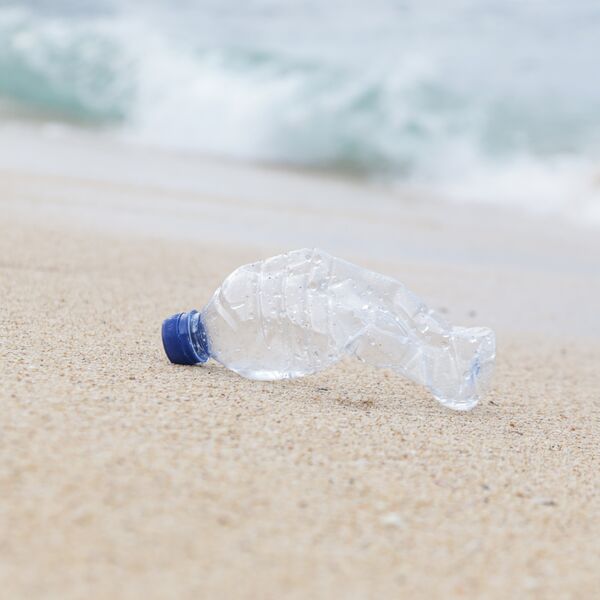Single-Use Plastic – Covid-19 Impact
It is estimated that eight million metric tons of plastic leak into the oceans and waterways each year – harming the creatures that inhabit them, with the remaining plastic waste often not decomposing and lasting centuries in landfill. Plastic reaches the waterways from discarded bottles, bags, and items, that have not been properly recycled or disposed of. These numbers are expected to have increased with Covid-19 seeing an increase in single-use plastic and PPE items.
UK PLASTIC DIRECTIVE
The UK government introduced new controls on single-use plastic from April 2020, which was delayed due to Covid-19 to October 2020. The legislation covered the ban on plastic straws, drink stirrers and cotton buds (made of plastic), with the European Parliament further voting that from 2021, the following products will be banned: –
-
- Single-use plastic cutlery (forks, knives, spoons, and chopsticks)
- Single-use plastic plates
- Plastic balloon sticks
- Oxo-degradable plastics and food containers and expanded polystyrene cups
With Brexit, this has left a question over whether UK is required to follow this directive and bring it into UK law. Northern Ireland is required to comply by 2022.

| Part of EU Directive | England | Wales | Scotland | Northern Ireland |
| Ban single-use plastic cutlery, plates, straws & stirrers | No ban for cutlery & plates | Proposed in consultation | Proposed in consultation | Yes |
| Ban expanded polystyrene food containers & cups | No | Proposed in consultation | Proposed in consultation | Yes |
| Ban all oxo-degradable plastics | No | Proposed in consultation | Proposed in consultation | Yes |
| Turtle graphic on beverage cups containing plastic | No | No | No | Yes |
The UK Government wants to reduce single use plastic using an alternative policy – Waste and Resources Strategy. The start of this policy was the legislation on limiting the use of plastic straws and stirrers.
Coronavirus impact on single-use plastic
2020 saw a rise in use of PPE (personal protection equipment) and Perspex screens, or better know as “sneeze guards”. But what will happen to the screens when the pandemic is over! There has already been reports of PPE ending up in the oceans at the very start of the pandemic. Stores that have invested in these guards, are reviewing the customer experience and whether they will remain post pandemic.
For online shopping deliveries during lockdown, the 5p plastic bag fee was suspended, despite the success of the bag sales prior to the pandemic showing a reduction by 95% of bag sales.
Restrictions on travel caused oil prices to crash, which pushed the cost of virgin plastic way below recycled plastic, making it a hard case for businesses to choose the latter. Particularly, when the economy is facing an uncertain future.
What’s more, where pubs and restaurants changed their business model from ‘indoor’ to ‘takeaway’ in order to stay open, the use of plastic cups and containers increased too.
How can we help?
Together we can make a difference and in these uncertain times, there are some small steps we can take as individuals to help reduce single-use plastic in our day-to-day lives.
- Wear a reusable mask – many reusable masks are being made available, which allow them to be washed and re-worn, to avoid single-use items.
- Reusable cups – bring your own mug or reusable coffee cup to places such as Costa or Starbucks, to decrease the amount of plastic being used.
- Be mindful of where you shop – local shops will often provide more plastic-free options than large supermarkets, so try to shop locally and avoid plastic where you can.
- Bring your own bag – most people will do this anyway, but it’s still important to try and bring your own ‘bag-for-life’ to decrease any plastic bags being distributed.
-
Next stages
April 2021 will see the plastic bag charge increase to 10p for all UK retailers, which includes all small business, no exceptions. With plans to implement by April 2022 a tax on plastic packaging containing less than 30% recycled content.
The refill industry has seen a uptake of users, with many supermarkets looking at options, with Aldi leading the way. More shops and pop-up stations are now offering this solution, being driver by consumer demand.
LUQEL fight against plastic
Drinking pure 100% filtered water without the reliance on plastic, was the foundation that started the idea of LUQEL. A true solution to offer a replacement to bottled mineral water, that doesn’t filter all the bad, and good from the water as some filtration systems. LUQEL adds back minerals to the pure filtered water to give each drink a personalised taste, whether for chilled, sparkling or hot water, an individual experience for each drink dispensed.

LUQEL WATER STATION
LUQEL is a pioneer in water technology, its’ mission is to radically change the way people drink water to make a lasting difference. Visionary innovations make plastic superfluous. With our perfect purification process, individual mineralisation, ‘smart’ bottles and the digitalised eco-system, our products turn tap water into a whole new level of water enjoyment, “Water as individual as you are”.

